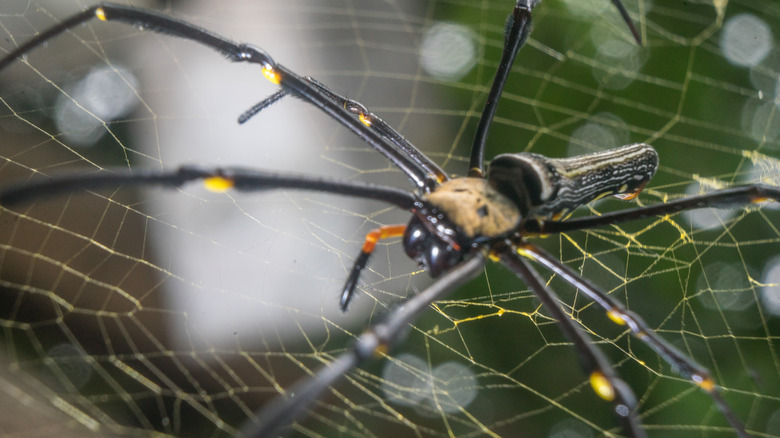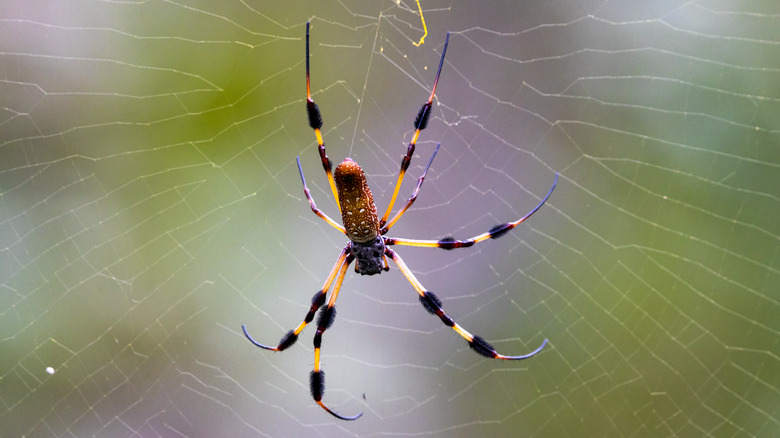Banana Spiders: The Venomous Pest You Don't Want To Find Lurking In Your Yard
So named because they tend to hide in banana shipments, there are actually several species that are often lumped under the umbrella term "banana spiders." The golden silk orb weaver, red-faced banana spider, and other Cupiennius species are some of the most common banana spiders that appear in North America. Banana spiders prefer to live in tropical and subtropical areas all around the world. In the United States, they are commonly found in warm, humid, southeastern states from Texas to North Carolina but may also be present in California, Arizona, and Hawaii. This big spider weaves one of the most impressive spider webs you'll see in the garden, distinguishable by its gold-tinged color, zippered center, and thread strength five times that of steel.
In addition to looking scary and weaving massive webs, banana spiders can deliver painful, venomous bites. Banana spider males are much smaller than the females and are more likely to spend time wandering in the woods in search of a mate than plotting to bite you. Even so, females can spin webs in unexpected places in your yard and catch you off guard if you're not careful. Here's why you should keep a close eye out for these spiders and remove them when necessary to avoid a nasty encounter.
Banana spiders aren't so sweet
Banana spiders can be aggressive when they feel threatened, and their venomous bite causes redness, swelling, and blistering of the skin, but isn't too dangerous to humans. However, if you're bitten by the rare Brazilian wandering spider (commonly called a "banana spider"), Healthline recommends seeking medical attention, as these bites can cause extreme pain, numbness, sweating, high heart rate, priapism, and even shock. Luckily, you're not likely to find banana spiders in your home or garage; they tend to prefer the great outdoors where they can build large, high webs on trees and catch plenty of prey. Of course, these impressive arachnids will sometimes take up residence on your porch, between support beams, or near a light source that attracts bugs at night.
If you spot a banana spider near your home, understand that they are harmless unless threatened and play an important role in the environment. If you can leave the banana spider alone, she will likely move on her own or die with the first frost. But if the web is obstructing a walkway or you're worried about children or pets being bitten, you can move the spider by collecting its web on a branch or long pole, such as a broom handle. Gently transfer the spider over to a more distant shrub or low-hanging branch, then back away. Certain strong scents like peppermint, lavender, eucalyptus, and white vinegar can prevent the spider from getting cozy near your home in the future.

